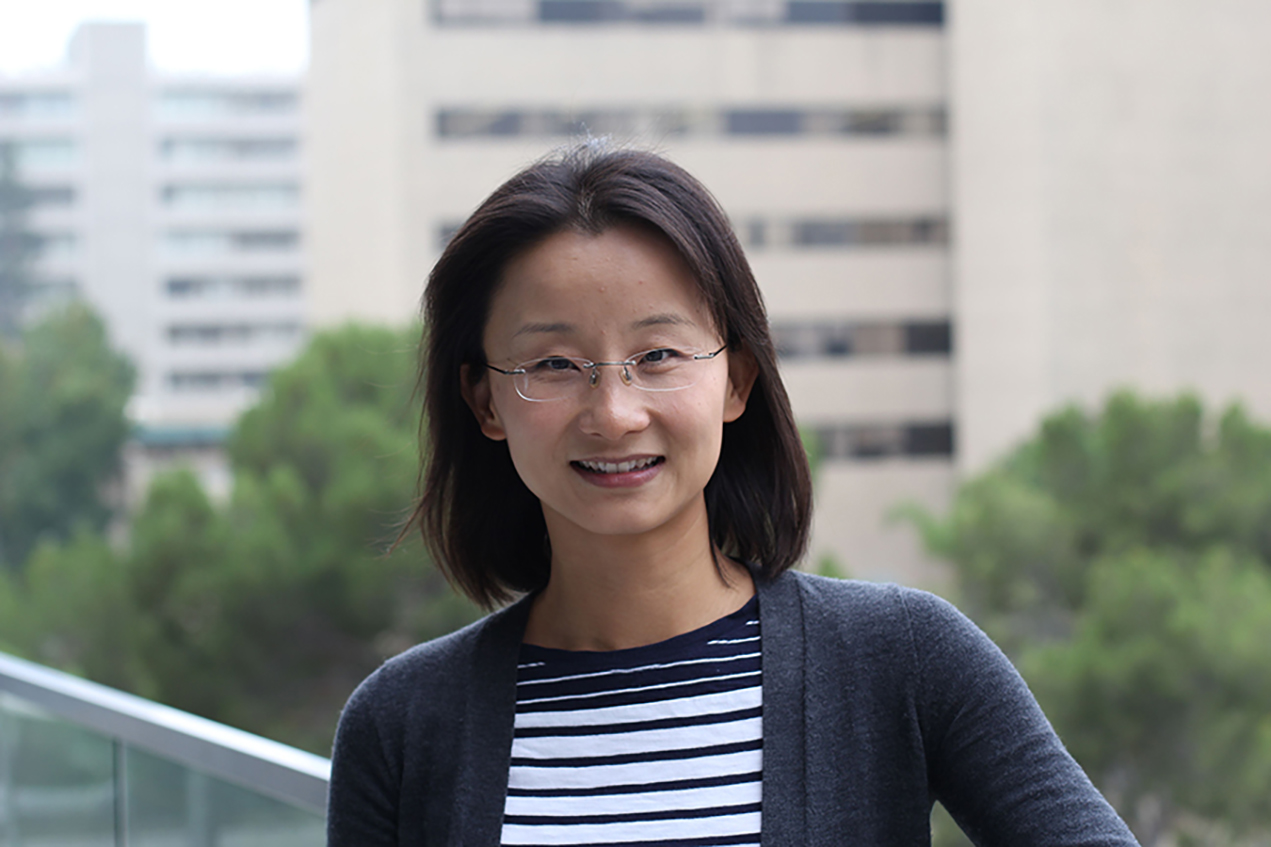Millions of blood cells are regenerated every second. To study the unique properties of individual blood-forming stem cells and how they contribute to aging, leukemia and other medical conditions, USC Stem Cell scientist Rong Lu, PhD, has received a $6.6 million Emerging Investigator Award from National Heart, Lung, and Blood Institute (NHLBI), which is part of the National Institutes of Health.
The NHLBI Emerging Investigator Award, also known as an R35 grant, funds outstanding overall research programs, rather than individual projects. The goal of this large and long-term 7-year award is to provide a stable funding environment, thereby improving productivity and facilitating nimble, ambitious and creative research.
“This award enables flexibility in pursuing new research directions, and it also saves time on grant writing and allows for exploring long-term and risky research projects,” said Lu, who is the Richard N. Merkin, MD, Assistant Professor of Stem Cell Biology and Regenerative Medicine, Biomedical Engineering, Medicine, and Gerontology, as well as a Leukemia & Lymphoma Society Scholar.
Lu plans to use the award to build on her previous studies demonstrating that individual blood stem cells — also known as hematopoietic stem cells, or HSCs — behave substantially differently from one another in both mice and humans. To delve into these differences, Lu’s lab has pioneered a new technology to label and track individual HSCs and to analyze their cellular and molecular characteristics and behaviors.
Lu will use this technology to understand how HSCs are regulated and coordinated to maintain overall balanced blood production, which is critical for successful bone marrow transplantation in patients with cancer or other blood diseases. She will also explore how the excessive multiplication of the progeny of one cell — a phenomenon called clonal expansion — affects both aging and diseases including leukemia.
“Many blood diseases and age-associated problems are initiated by rare cells,” said Lu. “Our research program will map the development of these diseases, identify the responsible cells and genes and shed new light on blood regeneration. This knowledge has clinical implications for optimizing bone marrow transplantation, detecting leukemia and related diseases at earlier stages, and informing stem cell therapies.”
Lu started her independent laboratory at USC in 2014, after completing her postdoctoral training at Stanford University, her PhD work at Princeton University, and her undergraduate studies at Lanzhou University in China. During her short time at USC, Lu has secured two NIH Research Project Grants and published four original research articles as a corresponding author.
“It’s a great testament to Dr. Lu’s productivity and progress that she has been awarded the NHLBI Emerging Investigator Award so early in her career,” said Andy McMahon, Chair of the Department of Stem Cell Biology and Regenerative Medicine at USC. “She has established a highly collaborative and active lab that has already made important discoveries about blood stem cells, and I look forward to seeing what she will accomplish next.”
— Cristy Lytal


